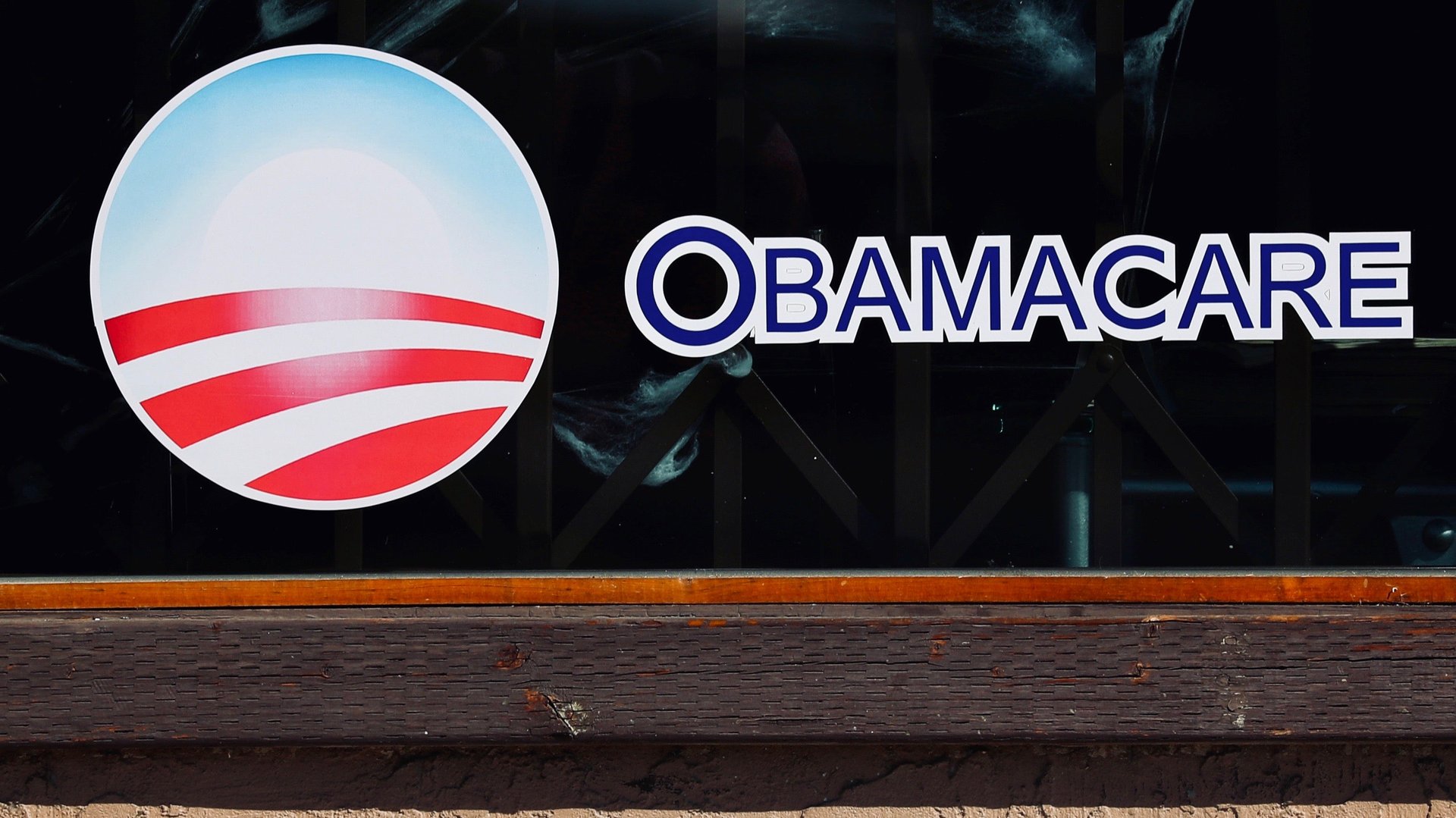Health insurers fighting claim denials made some seriously ironic arguments at the Supreme Court
The US Supreme Court heard supremely ironic arguments today from American health insurers, who say the federal government owes them $12 billion for losses incurred due to their participation in “Obamacare.”


The US Supreme Court heard supremely ironic arguments today from American health insurers, who say the federal government owes them $12 billion for losses incurred due to their participation in “Obamacare.”
“What could be worse than getting an insurance policy and at the point that you actually suffer a loss and try to make a claim, they say: ‘Oh, I’m sorry, we just decided we weren’t going to fund that policy’…even though you suffered actual losses,” asked attorney Paul Clement, arguing on behalf of health insurers.
If he recognized the irony in his question, Clement didn’t reveal it, asking sincerely, as if his clients have never been blamed for unreasonably denying claims themselves.
The insurers in the three consolidated cases before the court today argue they relied on the government’s promises to cover losses but that the government retroactively and illegally reneged on the deal. The government, meanwhile, says the insurers aren’t “entitled” to the funds.
The case stems from a dispute over a risk-mitigation program that was part of the Affordable Care Act (ACA), which passed in 2010. To induce insurers to participate in the insurance marketplaces created by the new law, and to keep their premiums down while accepting high risk customers, the government created the “risk corridors program,” which had insurers contribute a portion of profits gained from participating in the new national healthcare exchanges and receive compensation for a portion of losses if participation cost them.
While the insurers paid into the program, Congress didn’t appropriate funds for payouts for losses. The insurers sued on a contract law theory, arguing they relied on the government’s assertions. But the federal government says that a statute is not a contract and that the ACA’s programs were not a promise.
Shall pay, right?
A lower court read the lack of appropriations as an implied repeal of the risk-corridor program, finding for the government. But, generally speaking, finding “implied repeal” is frowned upon in the law. So are retroactive changes. So the health insurers took their fight to the high court, arguing that if the government can’t be trusted to pay when it says it will, private entities will be reluctant to do business with authorities.
Economists, professors, and 24 states and Washington, DC all filed briefs supporting the health insurers for this reason. They say that the government uses financial enticements to advance policies and that businesses will refuse to be moved by these inducements in the future if the Supreme Court approves of the government’s slippery tactics, endangering all public-private partnerships.
“This case involves a massive government bait and switch,” Clement complained to the justices today.
The US said it was no such thing. The program was only meant as a subsidy and the government never promised insurers that it would budget funds for losses, only that it would create a pool for payouts, funded in part by the insurers’ gains.
The justices seemed concerned by deputy solicitor Edwin Kneedler’s position, however, asking why the insurers had to pay into the program while the government had the option of not paying out. “You pay in, that’s obligatory. We commit ourselves to paying out. It turns out, if we feel like it,” justice Elena Kagan said, laying out the situation as she understood it. ” What what kind of a statute is that?”
“There’s no language of promise or entitlement in the statute,” countered Kneedler. A subsidy program offers enticements in the hopes people will carry out a government program but it creates no vested right, he noted.
Chief justice John Roberts reminded Kneedler of the words in the statute. “‘Shall pay,’ right?” Doesn’t that formulation indicate the government must pay, he wondered.
For their part, the insurers argued that the government mischaracterized their program. Clement pushed back on Kneedler’s assertion that it was merely a subsidy, stating:
So this is not a great subsidy program, if the only way you can get paid a penny is if you lose lots of money by providing your products on the exchanges. So what I would describe this program as is essentially more like an insurance program. The government says we very much want you to do this, and if you do it and lose money in the process, we shall pay a percentage of your losses. That’s why this retroactivity here is so pernicious.
Putting aside the fact that insurers retroactively renege on agreements to pay in the form of claim denials all the time, Clement had a point. There is no other situation where a person can make a deal and then just not pay a debt because they say they have no money for it in their budget.
Many of the justices seemed flummoxed by the government’s stance. As justice Brett Kavanaugh put it, “If we were to rule for you, everyone will be on notice going forward, private parties and Congress itself, that “shall pay” doesn’t obligate actual payments.”
Roberts wondered what more the government needed to feel obligated to pay. Kneedler replied that a signed deal, an actual bilateral agreement, would work. But the chief didn’t seem to buy it. “I don’t know,” Roberts said, interrupting the government’s argument.
The justices will have to know eventually, however. A decision is expected by late June.